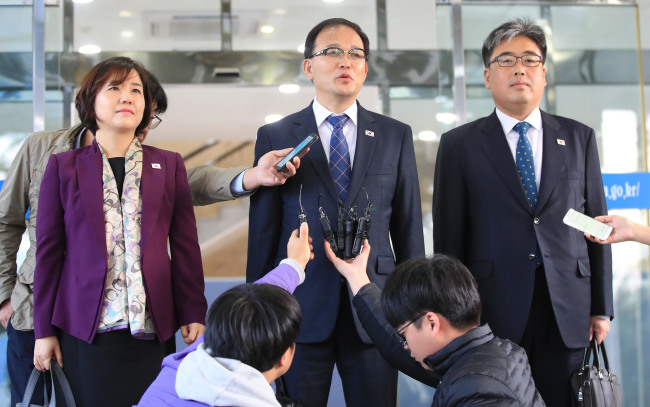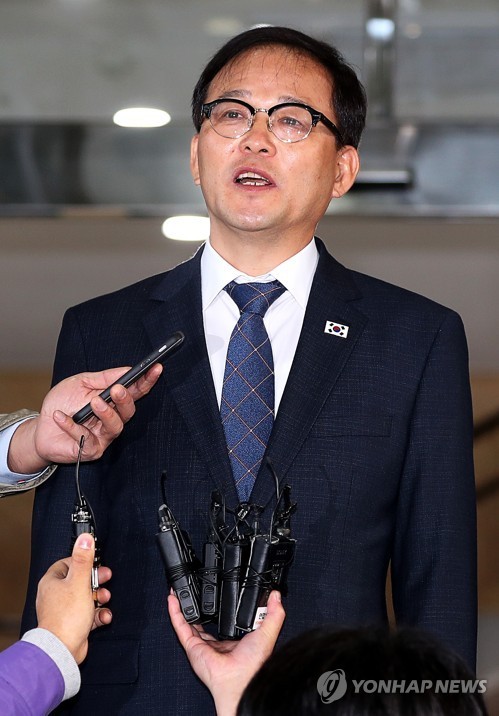South and North Korea held talks on Monday to discuss cross-border forestry cooperation and reforestation of North Korea’s woodlands.
The meeting kicked off at around 10 a.m. at the recently established joint liaison office in the North’s border town of Kaesong.
Park Chong-ho, deputy minister of the Korea Forest Service, led the three-member South Korean delegation while North Korea also sent a three-member team led by Kim Song-jun, a senior official of the North‘s ministry of environmental protection.
“(I) hope that this meeting will bear fruit by approaching this with a cooperative stance on discussing the agenda determined at the Pyongyang summit and high-level talks,” Park said at the start of the meeting.
 |
Park Chong-ho, deputy minister of the Korea Forest Service (Yonhap) |
Control of tree diseases, including pine tree pests, and modernizing tree nurseries were expected to be key items discussed at the meeting.
Following the first inter-Korean summit in April, Seoul officials have been focusing on mapping a reforestation project, which would allow for cooperation between the two Koreas without violating layers of international sanctions in place against the North.
North Korea’s decimated woodlands have plagued the ecosystem of the Korean Peninsula for more than a decade. Some 2.84 million hectares of the North’s total forest area of 89.9 million hectares were destroyed as of 2008, according to a report released by the Ministry of Unification in May, citing research by the National Institute of Forest Science. This is roughly 47 times the size of Seoul and 30 percent of the North’s entire woodlands. The report is expected to be further updated by the end of the year, as the survey is conducted every 10 years, according to the ministry.
 |
Park Chong-ho, deputy minister of the Korea Forest Service (Yonhap) |
Since coming to power in late 2011, North Korean leader Kim Jong-un has been making efforts to restore the environment of his country. In 2012, Kim announced a plan to plant 6.5 billion trees by 2023 and the country has held annual tree-planting events on North Korea’s Arbor Day, which falls on March 2.
Mountains in North Korea are believed to have suffered severe deforestation in recent decades, especially after a crippling famine swept through the impoverished nation in the mid to late-1990s, when people fell trees for fuel and to clear land for arable farmland. The country’s lack of preparedness and infrastructure for dealing with natural disasters, including floods and forest fires, contributed to the damage.
A team of South Korean officials visited North Korea in August to jointly inspect pest control and diseases in North’s forests.
This is the first inter-Korean meeting to be held at the joint liaison office since its launch on Sept. 14.
By Jung Min-kyung & Joint Press Corps (
mkjung@heraldcorp.com)









